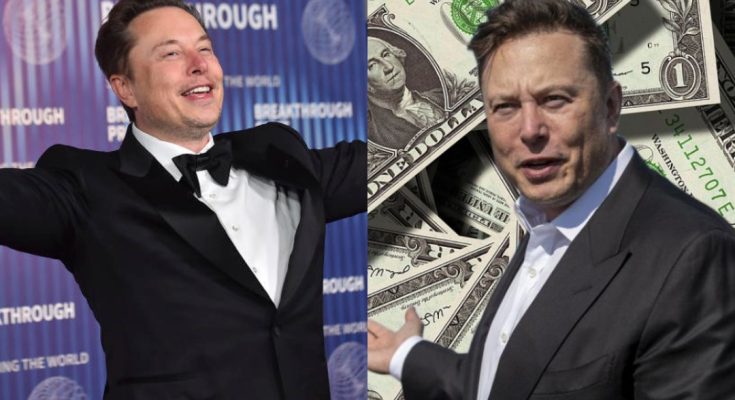Despite being the target of political outrage, a crumbling public image in key international markets, and ongoing operational difficulties at Tesla, Musk has leveraged his sprawling empire to achieve what many would deem impossible: a complete reversal of fortune at breakneck speed.
At the center of Musk’s financial comeback is the dramatic rebound of Tesla. The electric vehicle juggernaut, long seen as the bedrock of his wealth, has staged a stock market rally that defied its recent troubled performance.
Over the past month, Tesla shares have surged 44%, outperforming the broader S&P 500’s 18% rise. This comeback comes even though Tesla’s year-to-date performance remains down 13%, and the company continues to wrestle with falling sales and harsh competition abroad.
Musk’s 13% ownership in Tesla alone represents tens of billions in personal wealth, given that the company’s market capitalization currently stands at an impressive $1.13 trillion, positioning it as the eighth-largest public company worldwide.
This financial phenomenon is occurring despite the fact that Tesla’s fundamentals are raising concerns. In 2024, vehicle deliveries reached 1.789 million, reflecting a decline of 1.07% from the previous year — marking the first annual decrease since Tesla became a mainstream entity. More concerning, in the first quarter of this year, Tesla delivered merely 336,681 vehicles, indicating a 13% drop compared to the same period last year.
The decline is most pronounced in Europe, where local backlash against Musk’s political views, labor practices, and comments on social media have resulted in a surge of vehicle returns, particularly in Scandinavian nations. In Denmark alone, nearly 5,000 vehicles were returned, which local media described as a record-setting rejection of a global brand.
Simultaneously, Tesla’s performance in China, the largest electric vehicle market in the world, has suffered significantly. Chinese competitors, particularly BYD, have not only outperformed Tesla in terms of pricing and innovation but have also taken advantage of the rising nationalist sentiment and anti-American skepticism fueled by Musk’s political affiliations. As a result, Chinese consumers are increasingly distancing themselves from Tesla, perceiving Musk as overly aligned with the Trump administration.
Consequently, Tesla’s market share in China is diminishing, and its prospects in the region seem more uncertain than ever.
However, for every decline in Tesla’s quarterly sales or any protest against his leadership, Musk appears to have a counterbalance prepared — and these counterbalances are nothing less than empire-defining. Foremost among them is SpaceX, a private aerospace firm founded by Musk that now dominates the global launch sector.
SpaceX possesses a near-monopoly on U.S. government launches, and its influence reaches beyond the borders of America. Whether it involves satellites, military cargo, or crewed NASA missions, SpaceX is the preferred choice. Additionally, it operates Starlink, a swiftly growing internet network powered by thousands of low-Earth orbit satellites — a vital infrastructure platform that has become increasingly significant in geopolitical conflict areas and developing countries.
Recently, SpaceX’s valuation has surged to $350 billion. With Musk owning a 42% equity stake and an impressive 79% of the voting shares, he continues to be the unquestioned leader of the company’s direction. His authority is so comprehensive that no board, no coalition of investors, and no external regulator can effectively limit his decisions. This degree of power, coupled with lucrative contracts from the Pentagon and NASA, solidifies SpaceX as one of Musk’s most valuable and unassailable assets.
However, Musk is not solely focused on space and automobiles. His outlook for the future increasingly centers on artificial intelligence. His AI initiative, xAI, was established as a direct counter to OpenAI, a firm he previously assisted in nurturing but now regards as a competitor. xAI has rapidly emerged as one of the most talked-about AI startups in Silicon Valley.
Following a recent funding round of $6 billion, its valuation is estimated to be between $40 billion and $50 billion — an impressive feat for a company that is less than two years old. Musk possesses more than half of the company, providing him with another significant asset in a swiftly expanding industry. In a strategic development, Musk has recently integrated xAI with the social media platform X (formerly known as Twitter), which he also owns.
The combined valuation of these two entities is estimated to be around $100 billion. This merger enables Musk to provide integrated AI functionalities across social media platforms, commerce, and potentially even defense applications — a daring effort to develop a next-generation “everything app” with intelligence at its core. Whether xAI will be able to rival OpenAI, which is currently valued at $157 billion, is yet to be determined.
Nevertheless, with Musk’s resources and his inherent inclination to challenge limits, this possibility cannot be overlooked. In addition to his major brands, Musk’s smaller enterprises also play a role in the expansion of his financial empire.
Neural link, his brain-computer interface startup, remains in its early phases but holds significant long-term promise. Although regulatory issues have hindered its clinical advancement, the idea of merging human consciousness with AI continues to attract interest and investment.
This political balancing act is crucial to Musk’s capacity to maintain control and enhance the valuations of his enterprises, even in the face of significant backlash.
In summary, Elon Musk’s remarkable increase in net worth is not merely coincidental. It stems from his careful management of a varied portfolio of companies, each situated at the cutting edge of their respective sectors — electric vehicles, private space exploration, social media, and artificial intelligence.
By holding majority or controlling stakes in all these endeavors, Musk shields himself from conventional accountability and takes advantage of the volatility he frequently helps to generate.
While numerous billionaires opt for diversification to mitigate risk, Musk consolidates power and amplifies rewards. For better or worse, his approach is proving effective.
With Tesla’s recovery, SpaceX’s supremacy, xAI’s ascent, and political currents increasingly favoring him, Elon Musk has once again altered the landscape of modern capitalism. The $381 billion figure may soon become a thing of the past, eclipsed by even greater heights — and for those observing, whether with admiration or trepidation, one fact is evident: Musk is far from finished.


